|
Diet
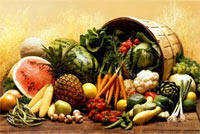
A parrots diet
consists of many things that they eat, many people use to think they eat only seeds and
that's not the case at all. They require a well balanced diet just like
us. I've listed below what to give your feathered friends, don't be shy when it
comes to vegetables & fruit. Your Pionus should have more in the way of
vegetables than fruit as fruit contains more sugar and should be given in
moderation. If your parrot doesn't seem to like fruits or vegetables, keep
offering them for at least a month or sometimes even longer. Eventually they may start munching on the veggies
or
fruit. Some parrots may take an interest to eating if they think you like
it, eat food items in front of your bird and it will often promote them into
trying it. Make it look like it is so yummy that they can't resist on
trying it, sometimes it works sometimes it doesn't. Don't let your parrot
get stuck on liking just one or two favorite things, the more you can get them
to like the better off they will be health wise.
A varied diet
largely made up of live foods will give you the healthiest bird. By live foods I mean vegetables, fruits, and whole grains. Dead foods are foods that don't
spoil quickly (i.e. packaged seeds & nuts). Some parrots may
require more nuts in their diet where other parrots may not need them in the
diet as much. Some nuts are more fattening to certain birds and not to
other birds.
The Pionus Parrot can be prone
to obesity, so watching intake on foods is important. Nuts especially contain a
higher fat content and should be limited. Feeding foods in moderation is
the best way to maintain a healthy diet.
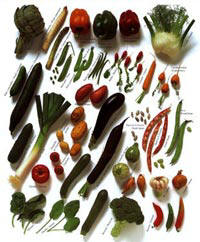
Vegetables: Carrots (cooked slightly for better assimilation of beta
carotene), string beans, corn, squash, peas, broccoli, zucchini, snow peas,
sunflower sprouts, pea shoots, sprouted seeds and beans (excellent for protein)
are all favorites. If your bird is reluctant to try these things, try sprouting
their seed mix. It will be familiar to them and seeds are much healthier when
sprouting (lower in fat, higher in amino acids for instance).

Fruits: High in sugar, don't substitute fruit for vegetables.
Vegetables always should make up the largest portion of the diet. Fruits do not
really need to make up a significant part of the diet. Grapes are relished by
most parrots.
I wash my
strawberries and other fruit in just clear running water and have never had a
problem. Most parrots like strawberries. Blue Berries are good and
provide the much needed antioxidants. Apples are loved by most birds, wash
well give them with or without the skin. Oranges are great too, although I
notice some of my birds are not that crazy about oranges. Most any fruit is good
for them, if they like it and will eat it then they will get a wide variety.
Parrots tend to have their favorite food items just like people do.
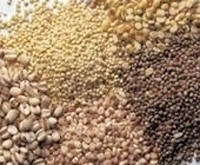
Grains: You can sprout many grains at home. Millet and quinoa are two nice
grains to sprout. Also, cooked brown rice and cooked quinoa are relished by many
parrots. Quinoa is a South American grain so parrots from this region probably
ate it in the wild. Any food you can duplicate from their natural
environment is an excellent choice. Grains do not need to be a large portion of
the diet. Pellets would fall into the category of grains as pellet consist
most of corn.
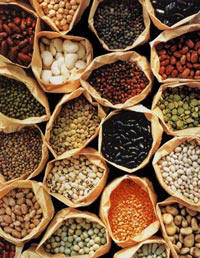
Beans:
Beans are an
excellent, non-fat source of protein and beans are one of the best sources of
dietary fiber and contain amino acids and vitamins. Pionus love all sorts of
beans... cooked of course! You can buy in your grocery store numerous types of
beans and even bags that contain many different types without having to buy
individual bags. There are also bird food manufactures who sell made up mixtures
to cook up as well for your parrot companion. You can sprout the uncooked beans
as well and makes it more nutritious. Some parrots have to grow accustom to
eating sprouted beans or seeds. You can also purchase a Soak and Cook bean mixture made for birds
and they love it.
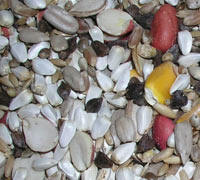 Seeds: Get a good, fresh seed mix. If you aren't sure it's good and
fresh, try sprouting it. If the seeds don't sprout in a few days, the seeds are
dead. They have no nutritional value. Give either a daily supply of seeds
or a couple times a week, but never
so much that the birds ignore their pellets, veggies or fruit. Let you bird have access to seeds
or pellets at all times because they don't spoil and can be left in the cage all day.
There are many brand name seeds on the market. Find a type that has no
sunflower or very little in the mix. Sunflower seeds are very fattening to
parrots. Give a seed mix to your parrots maybe 2-3 times a week, they seem
to always prefer it over pellets and other things, they tend to pick out their
favorite items in the seed mix which are sometimes not the more nutritional part
in the mix. They may leave behind the better and more nutritionally part
behind and you may be dumping it out, you can not make them eat what they leave
behind unless that all there is and some parrots will starve to death before
they will eat something that they don't like. This can vary from bird to
bird, what one bird will eat the other may not. Seeds should only be about
10 to 15 percent of the diet. Seeds: Get a good, fresh seed mix. If you aren't sure it's good and
fresh, try sprouting it. If the seeds don't sprout in a few days, the seeds are
dead. They have no nutritional value. Give either a daily supply of seeds
or a couple times a week, but never
so much that the birds ignore their pellets, veggies or fruit. Let you bird have access to seeds
or pellets at all times because they don't spoil and can be left in the cage all day.
There are many brand name seeds on the market. Find a type that has no
sunflower or very little in the mix. Sunflower seeds are very fattening to
parrots. Give a seed mix to your parrots maybe 2-3 times a week, they seem
to always prefer it over pellets and other things, they tend to pick out their
favorite items in the seed mix which are sometimes not the more nutritional part
in the mix. They may leave behind the better and more nutritionally part
behind and you may be dumping it out, you can not make them eat what they leave
behind unless that all there is and some parrots will starve to death before
they will eat something that they don't like. This can vary from bird to
bird, what one bird will eat the other may not. Seeds should only be about
10 to 15 percent of the diet.
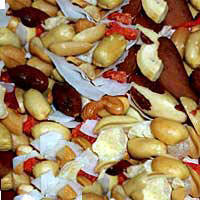 Nuts:
You can supply your parrot with nuts in moderation on a daily basis.
Fresh wholesome nuts are the best... meaning raw, keep away from processed nuts
such as ones that contain salts and flavorings as they are loaded with too many
chemicals and additives. The wide variety of raw nuts can be offered to your
parrot. Parrots may have their favorite nuts and prefer some over others.
The good and bad fats in nuts are: Unsaturated
fats are the "good" fats. Eating nuts will raise the percentage of unsaturated
fats and lower the percentage of the "bad" saturated fats in the bloodstream. On
average, one ounce of nuts contains 165 to 200 calories and 14 to 21 grams of
fat, but ninety-three percent of the fat in walnuts and ninety percent of the
fat in almonds is unsaturated. Birds need the three essential unsaturated fatty
acids (linolenic, linoleic, and arachidonic acids) to keep their skin and
feathers healthy, among other benefits. Essential fatty acids require Vitamin E
for absorption and nuts provide it in the proper balance. Nuts:
You can supply your parrot with nuts in moderation on a daily basis.
Fresh wholesome nuts are the best... meaning raw, keep away from processed nuts
such as ones that contain salts and flavorings as they are loaded with too many
chemicals and additives. The wide variety of raw nuts can be offered to your
parrot. Parrots may have their favorite nuts and prefer some over others.
The good and bad fats in nuts are: Unsaturated
fats are the "good" fats. Eating nuts will raise the percentage of unsaturated
fats and lower the percentage of the "bad" saturated fats in the bloodstream. On
average, one ounce of nuts contains 165 to 200 calories and 14 to 21 grams of
fat, but ninety-three percent of the fat in walnuts and ninety percent of the
fat in almonds is unsaturated. Birds need the three essential unsaturated fatty
acids (linolenic, linoleic, and arachidonic acids) to keep their skin and
feathers healthy, among other benefits. Essential fatty acids require Vitamin E
for absorption and nuts provide it in the proper balance.
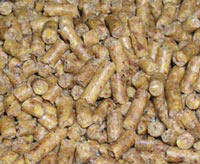
Pellets: There are many pellet types on the market.
I personally use
Roudybush Pellets.
To name a couple of others there are Zupreem, Kaytee plain, Exact Rainbow pellets,
Harrison's brands. There are other brands on the
market besides these ones that I mentioned. Birds should still have other things
in their diet besides pellets. Birds that are not use to eating pellets
have to be converted on to them and at first may not like them but keep on
offering them as you give them less and less of whatever else you have been
giving them.
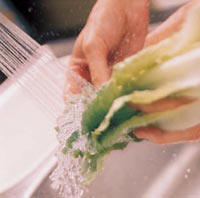
Food
Preparation: Use the same precautions you use for your
human family members. Salmonella, Escherichia coli, Listeria, and
other food-borne pathogens can and do affect parrots. Wash fruits, veggies,
meats well and use a clean area to prepare fruit or veggies. Prepare
your meats on a separate area from the fruits or vegetables. If I think food
items are spoiled then I don't offer it to my parrots, if it doesn't look
appealing to me then I feel its not good enough for my birds, although many
times a bird would probably eat it any way but I would not want my bird to get
sick.

People Food: Pasta, whole wheat breads, bits of very well cooked
chicken, and various other "people foods" are fine as long as they are not the
majority of the diet. Don't feed the bird food from your mouth and don't bite
off a piece for them. There's too much bacteria in your mouth and you can make
your bird sick. Make sure chicken is very well cooked and don't leave any food
like this in the cage for more than an hour. My parrots love chicken and steak
and a little bit is okay, just make sure it is cooked well.
Keep away from packaged foods like canned foods, prepackaged boxed dinner meals
as they often retain too many
chemicals and salts and such items that are not
good for a parrot and they are not actually that healthy for you either.
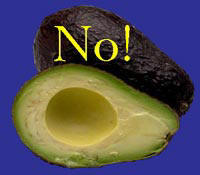
Avocado is Toxic to parrots, particularly African
species. To avoid confusion,
don't feed it to any of your birds.
Don't even try to see if your bird can tolerate eating it, as the
bird could get
sick or can result in death. It's one thing I've never attempted to give to
my birds and never will.
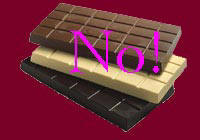
Chocolate is
also toxic
to parrots, they like chocolate but it is not wise to give them any.
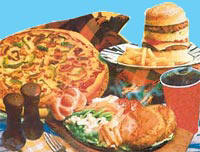
Junk Food: Parrots seem to love junk food but
is bad for them,
Many parrots cannot excrete large amounts of salt
efficiently, so the potato chips and french fries are not a good idea. Same
thing for table foods you've added salt to. A tiny crumb from a muffins,
cookie, or other fatty baked goods once in awhile might be okay, but don't get
your parrot use to these treats. You want to encourage them to eat the best
foods. Sugar in general is not good for parrots as it can cause hyperactivity.
Any food or drink
containing theobromine is forbidden. Chocolate, cocoa, coffee, and tea contain
theobromine, which can cause over excitability, cardiopathy, and death.
Absolutely positively do NOT give your bird wine, beer, or other alcoholic
beverages. Their livers cannot handle it. It is not funny to see a bird drunk
and anyone who thinks it is should find their birds a more appropriate home.
Birds have died from too much alcohol.
If you feed a good well round
wholesome diet to your Pionus or other parrots they should thrive well and live
full happy lives! Parrots should be given daily routines of food and can be
alternated through the week. Such as seeds given on certain days or pellets and
maybe certain vegetables on certain days and fruits as well. Also giving
certain foods for the early part of their day and other foods for the second
half of their day will often work out well! This also helps in keeping them from
getting bored with the same foods day in and day out.
I have find this to be true:
People sometimes tend to eat better when having parrots! I think this is
true in many ways and why is that? Providing you already love veggies, fruits,
beans, nuts and generally healthy food items then your parrot is more likely to
eat well too. |